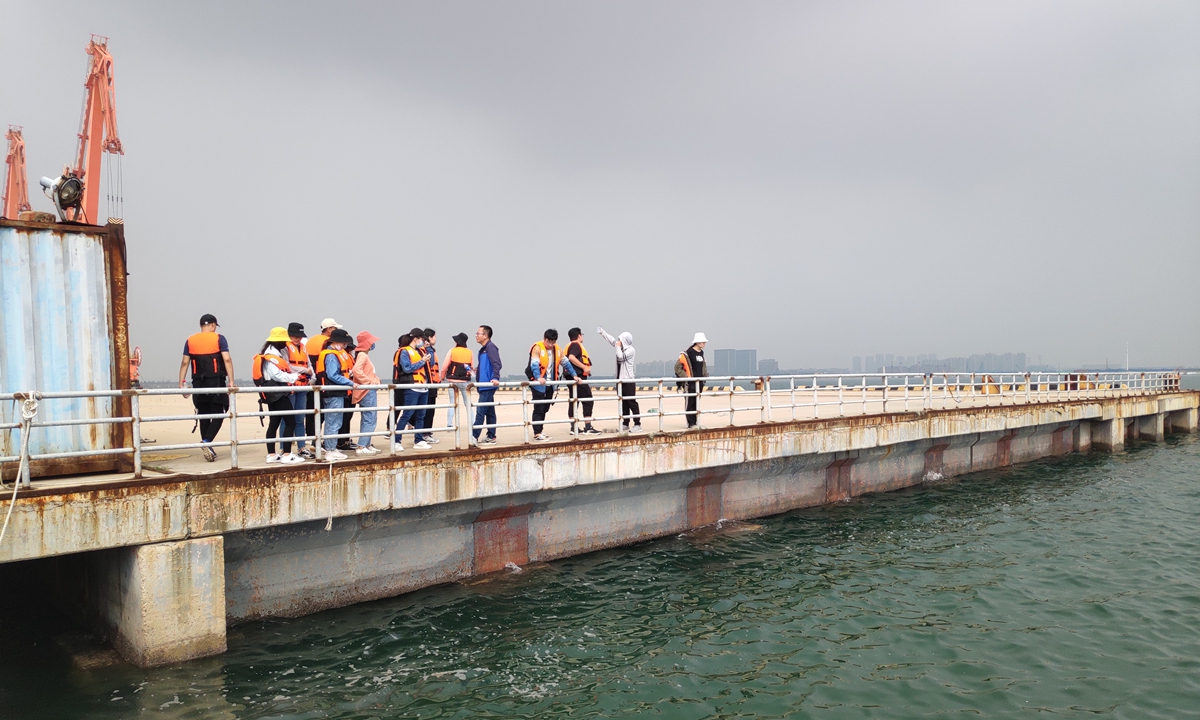Up-and-coming marine education in Tianjin University
Source: Global Times Published: 2020/12/9 16:33:40

Students conduct marine surveys in Tianjin on September 25 Photo: Courtesy of Tianjin University
The School of Marine Science and Technology in Tianjin University was established in April 2014, made up of a marine technology department, marine science department and marine strategy research institution. Currently, the school has a total of 53 faculties, over 200 undergraduates, 110 graduates and 40 PhD candidates.The vision of the school is "Facing marine data, combining science and technology, and emphasizing the characteristics."
The school advocates a concept of talent cultivation that is community-based, case-oriented and internationalized. It has established a data-driven teaching and research system covering marine exploration technology, marine data engineering, marine intelligent prediction and marine environmental protection, enabling students to master the acquisition, analysis, prediction and application of marine data. The school has set up a practical teaching environment including a training ship, an ocean observation field and marine innovation labs for all its students.
The school attaches great importance to cultivating students' sense of social responsibilities and encourage students to conduct social practices and surveys. Students are offered chances to participate in various activities like rowing competitions, video contest and social surveys in fishing villages. Starting from 2018, the school began organizing teachers and students to conduct social surveys at fishing villages in Shandong Province each year. Students investigated and learned many aspects of fishing villages including their education, economic, history, culture and ecological environment. Their investigation reports shed light on local fishery development transformation and raised people's awareness of the role science and technology plays in revitalizing fishing area economy.
The research topics of the school are mainly facing marine data, and focused on smart ocean observation, marine intelligent prediction, marine environmental protection, and so on. One of its research topics is the monitoring, analysis, prediction and remediation of marine environmental pollution such as microplastics, algae, antibiotic resistance genes, jellyfish and so on in Bohai Bay. The school also established an early warning system for marine ecological disasters.
The school actively promotes its international communication. It has now tied up with many international universities such as MIT, University of Hamburg, Nanyang Technological University. In the past three years, more than 280 exchange and cooperation visits have been made by foreign experts and scholars to the school, more than 100 people were recruited to participate in the exchange training and other further training activities hosted by the school. Moreover, about 30 students were sent to participate in the winter and summer programs of international universities.
In response to the "Belt and Road Initiative," the school pays great attention to develop a tight cooperation with the Association of Southeast Asian Nations (ASEAN). On July 29, 2017, the school established the ASEAN-China Smart Ocean Center and has launched a number of events including course training projects, a sailor training project, a video contest to popularize science, several forums in science and technology cooperation as well as exchanges of top students. Dr. Boonsit Yimwadsana from Mahidol University obtained with the support of International Talented Young Scientist Program, improved the measurement performance of underwater acoustic distance by working with Professor Fu Xiaomei from the school.
Posted in: PRESS RELEASE